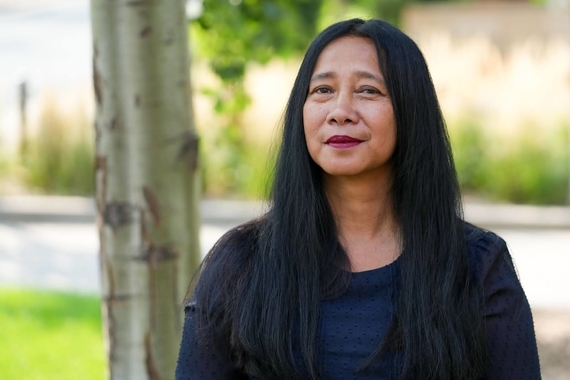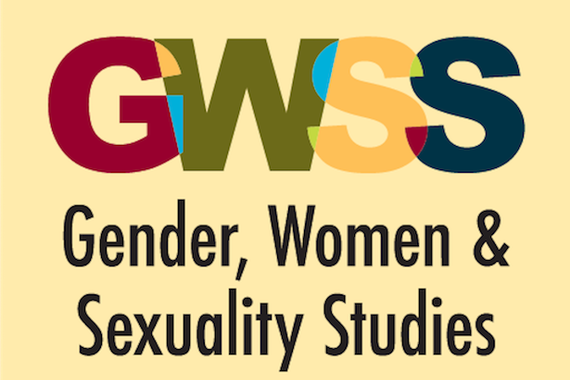Statement of Afghan Students and Scholars Abroad Regarding the Taliban’s Banning Women from Education and Employment
Statement of Afghan Students and Scholars Abroad Regarding the Taliban’s
Banning Women from Education and Employment
In early 2019, the United States officially resumed its direct negotiations with the Taliban
to reach an agreement on a joint framework for a future peace agreement in Afghanistan. As a
result, the Taliban were given standing and leverage, which they used to extract major
concessions, including the withdrawal of the international military forces from Afghanistan and
the release of 5,000 high-profile members of the Taliban from Afghanistan’s prisons. However,
on August 15, 2021, the Taliban illegally took over Afghanistan by force. Despite initially
promising a more moderate rule respecting rights for women and minorities, the Taliban have
widely and strictly implemented their restrictive interpretation of Sharia law since they seized
power in Afghanistan. The Taliban’s actions have included banning girls from attending
secondary schools; depriving women of participating in almost all spheres of society and public
life, including restaurants, parks, and gyms; and imposing hijab rules and gender segregation in
the few institutions that were supposed to provide educational and employment opportunities for
women. On top of these, in another inhumane action, following a decree dated December 20,
2022, the Taliban officially banned women from universities and deprived them of their right to
employment at all levels, effective immediately. As a result, Afghan women and girls have been
forced to bear complete isolation and denial of their most basic rights.
The Taliban’s actions against women contravene national law, jus cogens norms of
international law, human rights, Islamic doctrine, and shared human values, which no regime can
derogate from under any circumstances. Equally, the Taliban’s actions are against the culture and
beliefs of the people in Afghanistan. The Taliban have, unfortunately, made Afghanistan the only
country in the world where women are deprived of their most basic and fundamental rights and
are removed from society.
Since the beginning of peace negotiations with the Taliban, Afghan women were never
optimistic towards a joint future with the Taliban in terms of preserving their rights, since they
believed the current Taliban held the same extremist ideology against women as the previous
incarnation of the Taliban in the 1990s. Thus, many feared that any reintegration of the Taliban
into society would mean a repetition of past horrors or an invitation to even darker days. Women
bravely raised their concerns against any peace deal with the Taliban on many occasions.
However, what is deplorable is that these voices were never heard: not in the U.S.-led
negotiations with the Taliban, nor in the intra-Afghan peace talks, nor by the regional and
international actors involved in the process.
The Taliban’s bans on education and employment of women serves to establish gender
apartheid and to enact a policy of animosity, discrimination, and oppression against women in
Afghanistan. The destructive impacts of this policy are not only limited to women’s identity and
situation; rather, the Taliban have undermined the development of the whole country and its
people at large. These bans leave no doubt of the Taliban’s intention to impose and
institutionalize their fundamentalist and extremist narratives on the lives of all Afghan people.
Once again, the Taliban’s despicable policies against women have proven to be extremely
threatening to all aspects of people’s lives, from the structures of the family to the social,
economic, political, and legal foundations of Afghanistan. And the Taliban’s actions threaten
regional and global peace and security.
For these reasons, the current Taliban de facto authorities have no recognition, place, or
legality to the people of Afghanistan and should have no standing in the international
community. Therefore, in order to find possible solutions for the current humanitarian crisis in
Afghanistan, a transnational discourse should be held, and an urgent and robust mechanism for
restoring human rights in Afghanistan should be initiated. There is an urgent need for the
advocates of humanity to move beyond mere condemnations of the Taliban’s brutality and to
begin taking practical actions to uplift the voices of Afghan women.
We strongly believe that one of the main motives of the Taliban de facto authorities in
moving to exclude Afghan women from society and taking their rights hostage is to gain
international recognition. Under these circumstances any support or recognition of the Taliban de
facto authorities by the regional and international powers, despite the Taliban’s clear violation of
human rights and international norms, is a historical shame that will be followed by international
responsibility and accountability to all involved.
Therefore, global condemnation of and efforts to stop the brutal actions of the Taliban should
include the following:
● The urgent intervention of the United Nations, human rights organizations and defenders,
women’s rights advocates, and Islamic scholars to demand immediate reversal of the
recent decrees of the Taliban de facto authorities concerning women’s rights to education
and employment.
● Initiating a transnational conversation with the Taliban regarding the political, human
rights, and humanitarian crisis in Afghanistan, with due attention to the needs and red
lines of the people of Afghanistan. These negotiations must result in the formation of an
inclusive government based on elections and a pluralistic society.
● Closing the Taliban’s political office in Doha, Qatar, which has given a sense of political
recognition to the Taliban since the time of its emergence.
● Refraining from any de facto or de jure recognition of the Taliban by all States.
● Providing funding, educational opportunities, and scholarships to girls and women from
Afghanistan who are currently suffering from extreme levels of oppression.
● Accepting Afghan students who are in their last semesters of the university to online
courses and programs leading to conferral of the completion certificates and relevant
degree.
● Speaking out against barbaric acts of the Taliban against Afghan women’s rights and
freedoms under the name of Islam, especially by the Organization of Islamic Countries
(OIC) and Islamic academics and human rights institutions.
● Bringing transparency to the process of international humanitarian aid to make sure it
reaches the Afghan people in need and to avoid financing the Taliban.
We, Afghan students and scholars abroad, urge academic institutions, human rights
organizations and defenders, and women’s rights advocates not to leave Afghan women alone in
this crisis and their resistance. Afghan women are being killed, arrested, and tortured just for
asking for their fundamental rights and for standing against the inhumane actions of the Taliban
since the collapse of the former Afghan government. As human beings, we all have the shared
responsibility to support and stand with those in need. Therefore, in this challenging situation,
there is an urgent need to stand together, raise our voices, and take action against brutal human
rights violations in Afghanistan.
#AllOrNone
#LetHerLearn
#LetAfghanGirlsLearn
#StandWithAfghanWomen
#StopGenderAparteid
Sincerely,
Afghan Students and Scholars Abroad
Copies sent to:
- Academic Institutions and Universities Around the World
- OHCHR
- UNICEF
- UNAMA
- Islamic Human Rights Commission
- Organization of American States
- Inter-American Commission on Human Rights
- Commission for Human Rights, Council of Europe
- African Commission on Human & Peoples’ Rights
- Amnesty international
- Human Rights Watch
- Freedom House
- Human rights campaign
- Asian Human Rights Commission
- HRWF
- International Society for Human Rights
- Global Rights
- International Federation for Human Rights
- Front-Line Defenders
- The Advocates for Human Rights
- Center for Economic and Social Rights
- Human Rights House Foundation
- Open Society Foundation
- International Service for Human Rights
- Commonwealth Human Rights Initiative
- Humanity in Action
- Children Right Information Network
Signatories:
Abdul Ahmad Tawfiq London School of Economics and Political Science
Abdul Basit Amiri, Vanderbilt University
Abdul Hakim Karimi Hamburg University
Abdul Qadim Sabir, Pepperdine University
Abdul Qadir Amin, Euro Asian National University
Abdullah Adeal, Texas Southern University
Abid Jan, RWTH Aachen University
Adil Zafar, University of South Wales
Afsana Hamidy, King’s College London
Ahmad Milad Behzad, Michigan State University
Ahmad Raheb Radfar, State University of New York at Albany
Ahmad Zaki Ghafari, Clemson University
Ahmad Zaki Ghafari, Clemson University
Ahmad Zaki Sadeqi, University of Nebraska- Lincoln
Aimal Faayez, Wake Forest University School of Law
Akmal Durrani, Ohio University
Alaha Ahrar, George Mason University
Ali Ahmadi, University of East Anglia
Ali Dad Adib, Old Dominion University
Ali Reza Rasa University of applied science stuttgart
Ali Yaqubi, Purdue University
Ameenullah Amiri, Clemson University
Aref Doostyar, University of Notre Dame
Arif Pazhwak, New York University
Atefa Ghaznawi, University of Illinois
Atefa Hussaini Baghlan University
Atlas Millie Bay, University of Virginia
Azamat Zahid New York University
Azamat Zahid, New York university
Azima Kazimian, University of Central Florida
Bahara Hussaini, UMass Lowell
Barakatullah Mohammadi, Washington State University
Beheshta Rasekh, Syracuse University
Belal Noori, Maryland University College Park
Benafsha Yaqubi, University of East London
Benazir Noorzad, Oklahoma State University
Dawood Azeemy, Georgia State University
Dr. Zuhra Abawi, Niagara University
Duniya Stanikai, University of Pittsburgh, School of Law
Ehsan Naikkua, University of Dayton
Ehsanullah Nikfar, Oberlin College
Elham Sana, SUNY Binghamton
Enayat Nasir, State University of New York
Fahima Amini, Chapman University
Faisal Gulzad, University of York
Farida Qazanfari, University of Missouri
Farida Razaqi, SUNY Buffalo; Niagara University
Farkhonda Faizi, Clark University
Ferdaws Najimi, Tor Vergata university of Rome
Freshteh Zakeri, University of Illinois at Chicago
Ghiyas Kamyar, Insubria University
Gopika Viswanthan, Clemson University
Gul Ahmad Laiwal, University of Nebraska- Lincoln
Hadia Aziz, Nothingham Trent University
Hadia Khairzada, English Language literature
Hadisa Gowhari, Willamette University
Hameed Hassan, Old Dominion University
Hamidullah Bamik, University of Missouri Columbia
Hareer Hashim, American University in Dubai
Harun Sultani, Otto-von-Guericke- Universität
Husna Amini, Worcester Polytechnic Institute
Iqbal Shahrwand, University of Minnesota
Irfanullah Safi, University of Sussex
Jawad Hashimey, University of applied science Stuttgart
Kaleemullah Mehrabi, University of Illinois at Urbana-Champaign
Kanishka Wahidi, University of Erfut
Kawsar Arzomand, Brunel University London
Khadija Hussaini, Brandeis University
Lutfullah Rasikh, Arizona State University
Lutfullah Rasikh, Arizona State University
Madiha Ahmadi, Lancaster University
Mahbeigom Fayyazi, Rochester Institute of Technology
Mahdi Surosh, University of Minnesota-Twin Cities
Mahsa Ahmadi, George Mason University
Mahvash Rezaey, Washington State University
Maisoon Mir, Southern New Hampshire University
Malalai Habibi, University of Notre Dame
Mansoor Akbar, University of Kentucky
Maryam Jami, University of Pittsburgh
Maryam Jami, Pittsburgh University
Maryam Khurram, University of Westminster
Maryam Rayed, Georgetown University
Maseeh Ahmad Wassil, University of Missouri
Masooma Farhang, Eastern Michigan University
Masooma Masih, Temple University
Matin Jami, University of Iceland
Meherafroz Ghani, University of Kansas
Mohammad A. Rahimi, King Saud University
Mohammad Ashar Omer, The Bush School of Graduate Studies at Texas A&M Texas
Mohammad Edress Deliri, Newcastle University
Mohammad Elyas Faisal, MD University
Mohammad Ibrahim Abasi, New York University
Mohammad Ibrahim Abasi, Rochester Institute of Technology
Mohammad Jawad Haidari, North Carolina State University
Mohammad Jawad Jahid, Ohio State University
Mohammad Jawid, George Mason
Mohammad Khalil Taqavi, Central European University
Mohammad Mustafa Angar Swedish Instiute Study Scholarships (SSIS)
Mohammad Mustafa Raheal, University of Bath
Mohammad Nawab Afghan, University of Illinois at Urbana-Champaign
Mohammad Nazir Dawi, University of Missouri
Mohammad Parwiz Afshar, Indiana University
Mohammad Qasim Wahaj, Georgia state university
Mohammad Ramin Anis, Virginia Tech
Mohammad Sadeq Ahmadi, Florida State University
Mohibullah, St. Cloud State University
Mojebullah Aria, Portsmouth University
Morwared Sherzad, University of York
Mostafa Moradi, North Carolina State University
Mozhdah Radmanesh, Kansas University
Mukhtar Hussain Alizada, Kansas State University
Mursal Ayobi, University of York
Musa Joya, University of Surrey
Mustafa M Wali, Texas Southern University
Muzghgan Mohammad Nasim, University of East Anglia
Najib Amin, Leiden University
Najibullah Loodin, Texas A&M University
Najibullah Zulfeqar, Auburn university
Naqibullah Ahmadi, Western Michigan University
Narges Kazemi, Niagara University
Nasema Zeerak, University of Minnesota-Twin Cities
Naser Khairi, University of applied science stuttgart
Nasiba Hamidy, University of Notre Dame
Negina Azizi, Chiragh Medical Institute
Negina Barai, London School of Economics and political science
Nisar Ahmad Anwari, Arizona State University
Omid Jooya, University of Northern Iowa
Parisa Sekandari, Monash University
Raihana Saidy, Kent State University
Raziya Sadat, University of Nebraska Lincoln
Riaz Ahmad Ludin, University of illinois
Rohullah Arya, University of Dayton
Roqia Samim, University of Notre Dame
Rostam Ali Bahadori, Rochester Institute of Technology
Rubaba Azad, UMass Amherst
Said Tamimullah, University of Kansas
Saiemeh Wahidi, Kansas University
Sajia Aziz, University of Illinois
Sayed Abuzar Kazimi, Texas Southern University
Sayed Ahmad Fahim Masoumi, Rhein Waal
University of Applied Science
Sayed Besmellah Ehsani, University of Dayton
Sayed Isteqlal Murad, University of Dundee
Sayed Jawad Hussaini , Dow University of Health Science
Sayed Mustafa Waqef, Rochester University
Seddiqa Rezayi, Stevens Institute of Technology
Shafaullah Bashary Hotak, University of Passau
Shah Hussain Adib, Southern New Hampshire University
Shakofa Barakzai, Turin University
Shawkatullah Muslimwal, Southern Illinois University of Carbondale
Shekiba, RMIT University
Siyar Ershad, Kazan Federal University
Sohail Jahed, University of Central Florida
Sulaiman Assadullah, University of Missouri
Sulaiman Sherzad, Michigan Technological Universities
Tahmina Sobat, University of Minnesota-Twin Cities
Tamana Dawi, Niagara University
Wahid Salsaal Technische Universität Graz
Wahidullah Azizi, University of Potsdam
Wasila Adeem University of Manchester
Wasiuddin Najam, Texas Tech University
Wasiuddin Najam, Texas Tech University
Zahra Amiri, University of Kansas
Zahra Amiri, Southern New Hampshire University
Zahra Amiri, Stevens Institute of Technology
Zahra Rezai, Vanderbilt university
Zainab Azizi, Governors State University
Zakera Azizi, University of Miami
Zaki Rasa, University of Porto
Zakira Rasooli, University of Notre Dame
Zeinab Rezai, Colorado State University
Zuhal Nasrat, Syracuse University


